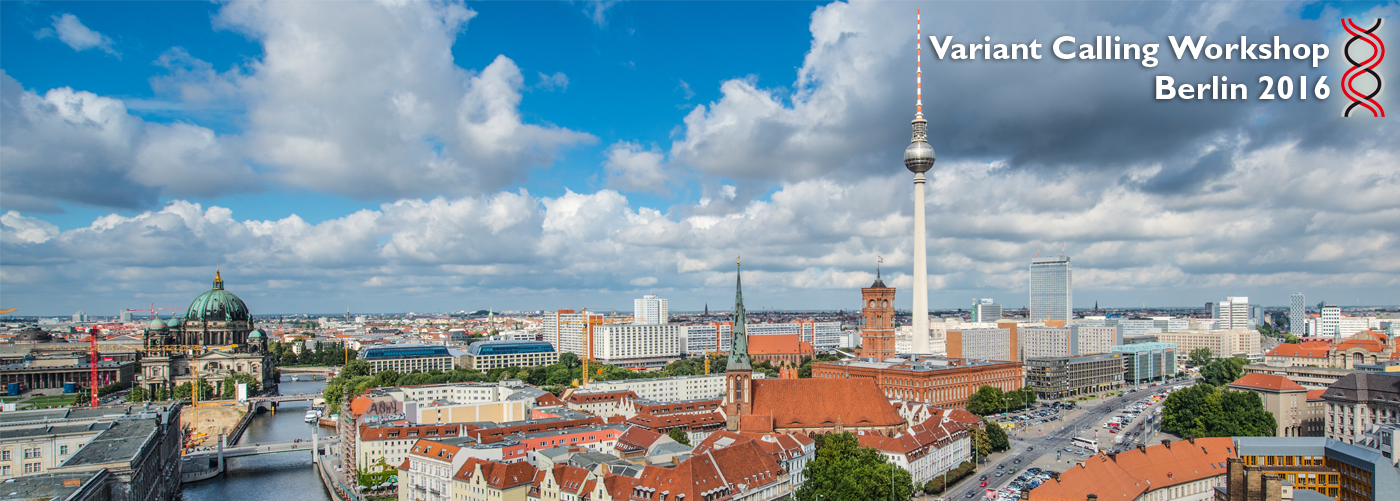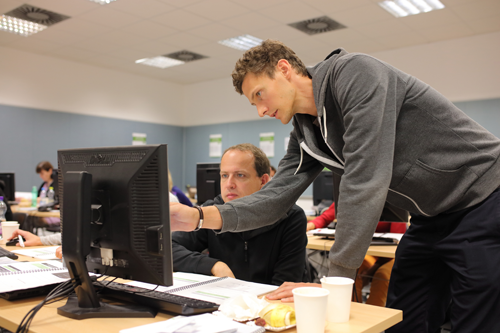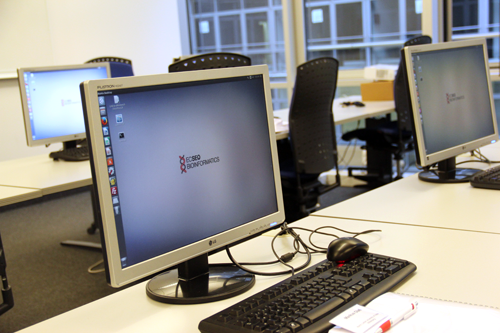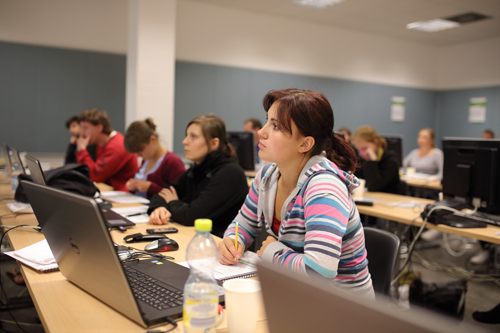DNA Variant Calling Workshop
How to call genomic variations and uncover their effects

Link: Workshop Website
When? September 21 - 23, 2016
Where? Berlin, Germany
Scope and Topics
The purpose of this workshop is to predict single nucleotide variations (SNVs) using Next-Generation Sequencing (NGS). Advantages and disadvantages of current tools and their implications on downstream analyses will be discovered. We will use the Genome Analysis Toolkit (GATK) and discuss best practices for variant discovery. The participants will be trained on analyzing their own NGS data, finding potential SNVs therein and finally perform downstream analyses including the prediction of variant effects, analyses of affected pathways, associations of detected SNPs to diseases, etc. In the course we will use a real-life DNA-seq dataset from the current market leader illumina.
All workshop attendees will be enabled to perform important first tasks of NGS data analysis themselves. The course layout has been adapted to the needs of beginners in the field of NGS bioinformatics and allows scientists with no or little background in computer science to get a first hands-on experience in this new and fast evolving research topic.
Workshop Structure and Program
This workshop has been redesigned and adapted to the needs of beginners in the field of NGS bioinformatics. The workshop comprises three course modules:
Day 1 (09:00 AM - 05:00 PM)
NGS for beginners
- Introduction to sequencing technologies from a data analysts view
- Raw sequence files (FASTQ format)
- Preprocessing of raw reads: Idea of adapter clipping and quality trimming
- Mapping output (SAM/BAM format)
Day 2 (09:00 AM - 05:00 PM)
Introduction to variant calling
- Introduction to variant calling and its statistics
- Running the Genome Analysis Toolkit (GATK) and other variant calling tools
- Variant calling output (VFC format)
- Comparing the results of the different tools
- Visualisation of SNPs in a genome browser
Day 3 (09:00 AM - 05:00 PM)
Uncover effects of relevant variants
- Position within genome (intergenic, intron, exon...)
- Effect on protein function (synonym VS non-synonym)
- Effect on pathways(GO-Term analysis)
- Effect on individuals (disease associations...)
Target Audience
- biologists or data analysts with no or little experience in analyzing RNA-Seq data
Requirements
- basic understanding of molecular biology (DNA, RNA, gene expression, PCR, ...)
- For the Introduction to NGS Data Analysis and downstream courses: basic linux & bioinformatics knowledge (shell usage, common commands and tools). You should be familiar with the commands covered in the Learning the Shell Tutorial
Included in the Course
- Course materials
- Catering during the workshop
- Conference Dinner
- High-performance workstations (no laptop needed)
- USB-Stick for taking home results and analysis
Trainers
- Dr. Jörg Linde (Hans Knöll Institute) analyses Next-Generation Sequencing data of human pathogens and their host. He has developed pipelines for dual-RNASeq data and SNP-calling analysis. Jörg is interested in the consequences of gene expression changes and genomic variations to host-pathogen interactions.
- Dr. Rina Ahmed (CCR Bio-IT) is a bioinformatician by training and specialized in the field of Next-Generation-Sequencing in 2010. During her PhD work on microRNA genes and their evolution in nematodes she was involed in the development of the barcode and adapter removal tool flexbar. Rina has developed NGS data analyses pipelines for small RNA-Seq and DNA resequencing data.
- Dr. Mario Fasold (Seamless NGS) has developed several bioinformatics tools such as the Bioconductor package AffyRNADegradation and the Larpack program package. Since 2011 he is specialized in the field of HTS data analysis and helped analysing sequecing data of several large consortium projects.
Key Dates
Opening Date of Registration: Februray 1st, 2016
Closing Date of Registration: September 1st, 2016
Workshop: November 21 - 23, 2016 (9 AM - 5 PM)
Attendance
Location: PC-College, Stresemannstraße 78, 10963 Berlin, Germany
Language: English
Available seats: 20 (first-come, first-served)
Registration fees
998 EUR (excluding VAT)
Travel expenses and accommodation are not covered by the registration fee.
>>> registration




